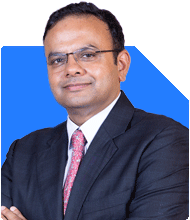Hi, I am a 50 Years old NRI. I have savings of 5 Crores. I am looking for the suggestions to invest the money which could give me 4-5 lacs per month after 5 years on a regular basis.
Ans: You’re 50 years old with savings of Rs 5 crores. You want to generate a regular monthly income of Rs 4-5 lakhs after 5 years. This is a significant and achievable goal with a strategic investment plan. We will evaluate various options to ensure your savings grow while maintaining the required risk balance.
Evaluating Current Savings
Existing Corpus: Rs 5 crores is a substantial amount. With the right strategy, this can be grown to generate the desired monthly income.
Investment Horizon: You have a 5-year timeline to build your corpus before starting the regular withdrawals. This gives you a window to consider both growth-oriented and income-generating investments.
Monthly Income Target: Your goal is to achieve Rs 4-5 lakhs per month, translating to Rs 48-60 lakhs annually. The investments need to not only grow your capital but also ensure this target is met consistently over the long term.
Strategic Investment Approach
Diversifying the Portfolio
Actively Managed Equity Funds: These funds provide higher returns over the long term compared to passive funds like index funds. Fund managers actively select stocks to outperform the market. This can be crucial for growing your corpus over the next 5 years. The growth potential of these funds can help meet your goal.
Balanced Funds: These funds invest in both equity and debt, offering a balanced approach. They provide growth through equity and stability through debt. They also tend to be less volatile, which is important as you near your income generation phase.
Debt Funds: These funds are suitable for reducing risk closer to retirement. They invest in bonds and other fixed-income instruments, providing regular interest income with relatively lower risk.
Systematic Investment and Withdrawal Plans (SIPs and SWPs): Start with a SIP to build your corpus. After 5 years, switch to an SWP to generate a regular monthly income. This approach ensures that your capital continues to grow while you withdraw a fixed amount monthly.
Risk Management
Equity Exposure: While equities offer high growth potential, they also come with risk. As you approach your income generation phase, it’s essential to gradually reduce equity exposure. This protects your capital from market volatility.
Debt Allocation: Increasing your allocation in debt funds as you near retirement helps preserve capital. It also ensures a steady income through interest payments, which can supplement your equity income.
Tax Efficiency
Tax Planning: Post-retirement, the regular income generated should be tax-efficient. Investing in tax-saving mutual funds and using long-term capital gains benefits can reduce your tax liability.
Avoiding High Tax Instruments: Interest income from FDs and some debt instruments is taxable at your slab rate. By focusing on mutual funds with lower tax rates on long-term gains, you can optimize your post-tax returns.
Health and Life Insurance
Health Insurance: Ensure you have comprehensive health insurance. Medical costs tend to rise with age, and having a robust health cover will protect your savings from unexpected expenses.
Life Insurance: If you hold any investment-cum-insurance policies like ULIPs, consider surrendering them. The surrender value can be reinvested in mutual funds, which generally offer better returns. Additionally, ensure that your life insurance provides adequate cover for your family.
Estate Planning
Will Preparation: Drafting a will ensures your assets are distributed according to your wishes. It prevents legal hassles for your heirs and ensures that your hard-earned wealth is passed on smoothly.
Nominee Updates: Ensure all your investments, insurance policies, and bank accounts have updated nominees. This simple step ensures that your loved ones can access the funds without delays.
Regular Portfolio Review
Annual Reviews: Review your portfolio annually with a Certified Financial Planner. This helps in adjusting your investments based on market conditions and personal goals. Regular reviews ensure that your plan stays on track and adapts to any changes in your circumstances.
Rebalancing: As you near the end of your 5-year growth phase, gradually rebalance your portfolio towards safer assets like debt funds. This reduces the risk of market downturns affecting your income.
Disadvantages of Index Funds and Direct Funds
Index Funds: Index funds simply mimic market indices, without the potential for outperformance. In your situation, actively managed funds offer a better chance of achieving your income goals by aiming to outperform the market.
Direct Funds: While direct funds have lower expense ratios, they require active management and understanding of market dynamics. Investing through a Certified Financial Planner in regular funds can provide valuable advice, ensuring your investments are aligned with your goals.
Final Insights
With Rs 5 crores, achieving a monthly income of Rs 4-5 lakhs after 5 years is realistic with a well-planned investment strategy. By diversifying your portfolio, managing risks, ensuring tax efficiency, and planning for health and estate needs, you can secure a comfortable and financially stable retirement. Regular reviews and adjustments will help keep your plan on track, ensuring that your financial goals are met.
Best Regards,
K. Ramalingam, MBA, CFP
Chief Financial Planner,
www.holisticinvestment.in
















.jpg)











